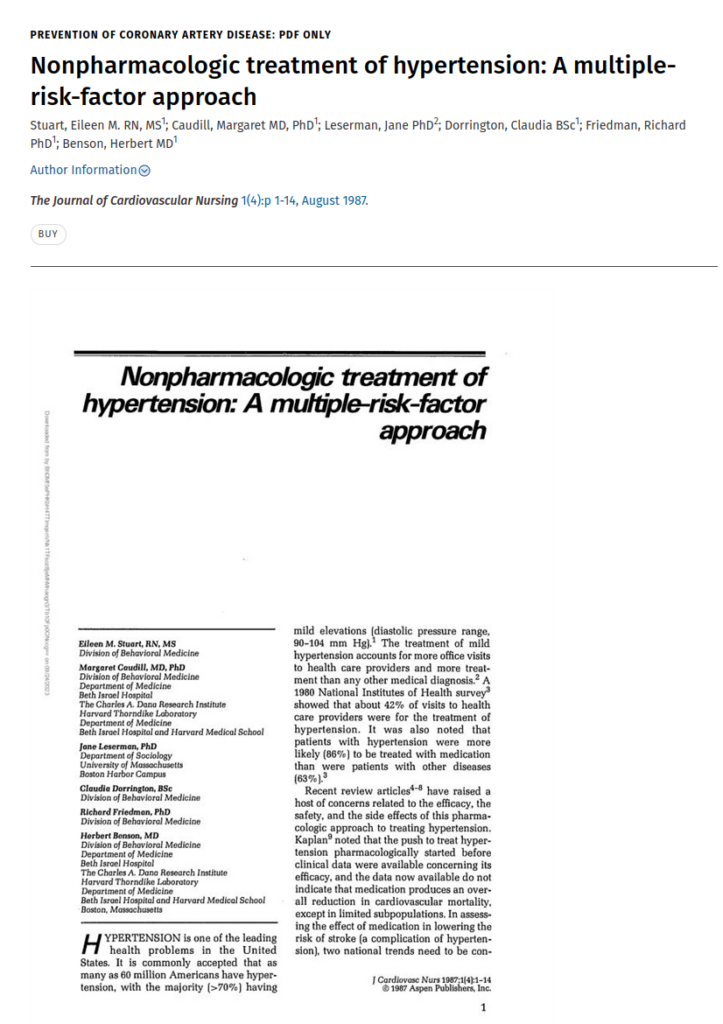Publication
Journal of Cardiovascular Nursing
1(4):p 1-14
Abstract
Hypertension is one of the leading health problems in the United States. It is commonly accepted that as many as 60 million Americans have hypertension, with the majority (>70%) having mild elevations (diastolic pressure range, 90-104 mm Hg). The treatment of hypertension accounts for more office visits to health care providers and more treatment than any other medical diagnosis. A 1980 National Institutes of Health survey showed that about 2% of visits to health care providers were for the treatment of hypertension. It was also noted that patients with hypertension were more likely (86%) to be treated with medication than were patients with other diseases (63%).
Web and Email Links
Related Listings
Journal
Journal of Clinical Medicine
Stress is a term used to define the body’s physiological and psychological reactions to circumstances that require behavioral adjustment [1,2,3], and the relaxation response is a psychophysiological state that is opposite to that of the stress or fight–flight response [4]. A variety of mind/body techniques can be used to elicit a relaxation response and achieve the therapeutic effects associated with reduced blood pressure. For example, researchers at the Cochrane Review [5] investiga […]
Journal
Journal of Cardiopulmonary Rehabilitation
We previously reported reduced blood pressure, psychological symptoms, and other cardiac risk factors in hypertensive patients who participated in a nonpharmacologic, outpatient behavioral program. The present study is a 3 to 5 year follow-up of 59 (60%) of the same patients (who served as their own controls) to assess continued efficacy of the program. At entry into the study, patients had hypertension for a median of 6 years. Therefore, it is unlikely that placebo effect could expla […]
Journal
Yoga Alliance
About This Workshop 70-90% of all primary care visits in America are related to chronic stress and stress-related illnesses such as anxiety, depression, PTS, heart disease, headaches, GI disruptions, and more. In the next workshop of the Scientific Research series, Yoga Alliance Director of Research, Dr. Sat Bir Singh Khalsa is joined by Dr. John Denninger, Director of Research at the Benson-Henry Institute for Mind Body Medicine at Massachusetts General Hospital and Harvard Universit […]

